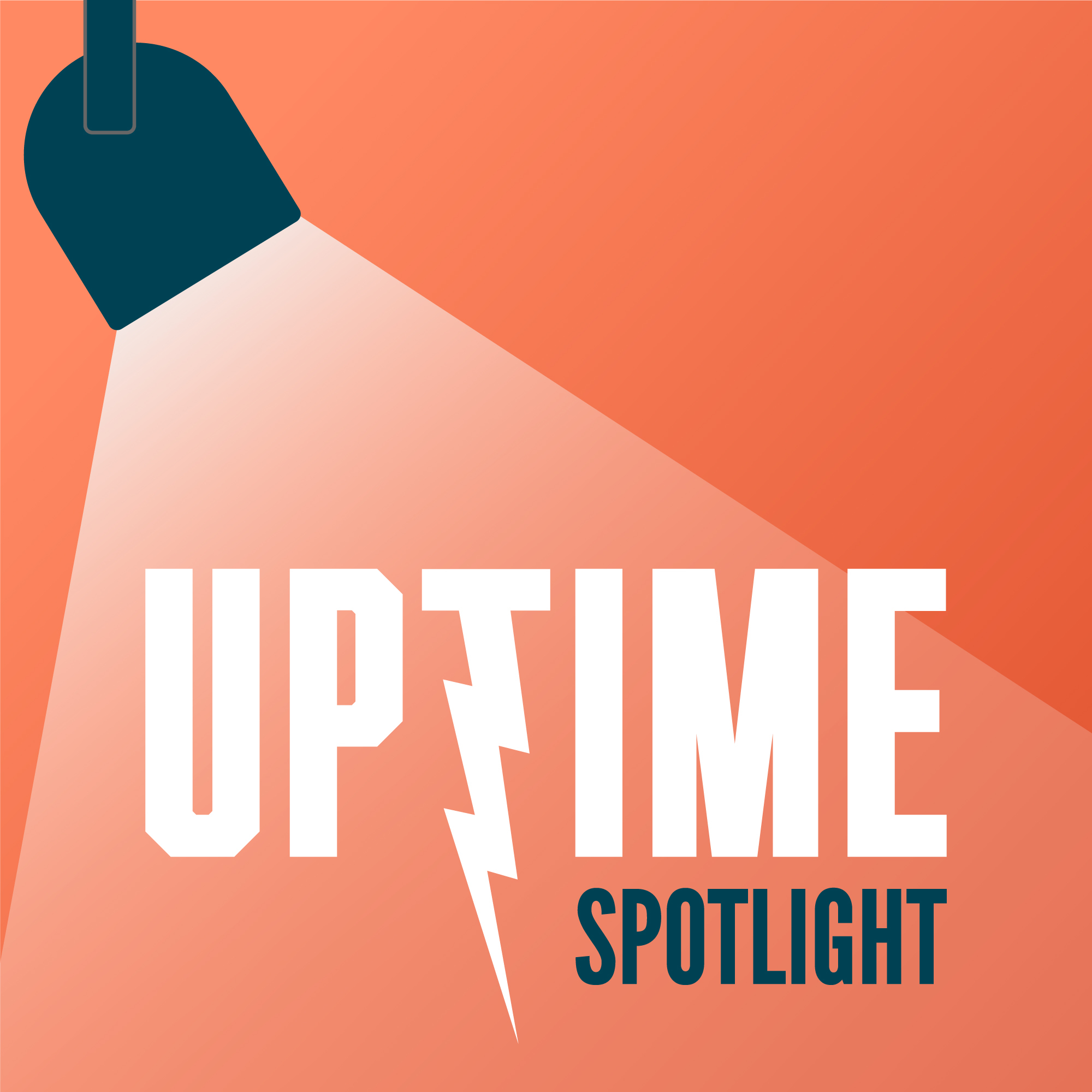Bonus Content: Renewables Opposition & TPI’s Financial Outlook
Update: 2025-08-21
Description
Allen, Phil, and Rosemary continue the discussion from Tuesday's episode, diving into renewables opposition and TPI's financial situation.
Sign up now for Uptime Tech News, our weekly email update on all things wind technology. This episode is sponsored by Weather Guard Lightning Tech. Learn more about Weather Guard's StrikeTape Wind Turbine LPS retrofit. Follow the show on Facebook, YouTube, Twitter, Linkedin and visit Weather Guard on the web. And subscribe to Rosemary Barnes' YouTube channel here. Have a question we can answer on the show? Email us!
Welcome to Uptime, spotlight, shining light on wind. Energy's brightest innovators. This is the progress powering tomorrow.
Allen Hall: So what we're talking to energy, everything is difficult, so we wind and solar can be difficult to make money in. But some of the discussion about moving back to coal or, or moving back to older sources of electricity generation, their money losers too.
Rosemary Barnes: Yeah, probably even more efficient money losers. And on a larger scale, you know, at least wind and solar, you could lose, lose money a little bit at a time and you don't lose money on the operation.
Um, you know, it's, it's all in the, the, the capital cost. Whereas coal can lose money ev every single, every single day that the plane operates. So I [00:01:00 ]guess that that's, uh, yeah, that's true. It's not as, not as bad as that.
Allen Hall: So is there a industry fix or is there a hope for the future? Right now, I don't see it.
Rosemary Barnes: I was reading this book for a little while and I stopped reading 'cause I, um, it had some good ideas, but it wasn't like totally rigorous in its, um, exploration of all the ideas. I think it's called The Price is Wrong, or something like that. And it's about how like, it's not possible to have a renewables industry that isn't subsidized by the government.
And, um, there's some, I I, I think that there's some truth to that, but I would replace. That there's, it's impossible to have a renewables industry if that's not subsidized. Rather say it's impossible to have an electricity system that's not subsidized in some way by the government. Um, and yeah, I mean, just rec recognize that and maybe we don't need to to fight that, but, um, it, it is always turns like so tribal that everyone's arguing over who's got the more subsidies or who's.
More dependent on subsidies. Um, yeah, it'd be easier [00:02:00 ] if we could all, you know, get on the same page about climate change and just acknowledge what we needed to do. But, you know, if, if wind and solar power never came along and we didn't care about climate change, then we'd still be subsidizing, uh, yeah, like coal and, and gas and, uh, all the transmission and, uh, I don't know, infrastructure.
You need to transport those fossil fuels around. Like, you know, we'd, we'd still be subsidizing because people still need electricity and still get upset if it's, um, you know. So expensive that you are stuck, you know, choosing whether you want to eat this week or heat your home this week. So,
Allen Hall: well, is it because electricity was late to the game?
The railroads sort of blew through the United States and everywhere else in the world because it was easy.
It missed Australia, but yeah, would would've been nice.
Allen Hall: But here, here in America, the railroads pretty much owned most of America very quickly. Uh, and got it done before there was any real. Feedback like they would be today, as soon as you wanna put a transmission tower in somebody's farm field.[00:03:00 ]
Huge, huge uproar. States are involved, senators are involved. The government's all over it. There's committee meetings. Everything gets really slowed down versus 1860s. It just happened.
Rosemary Barnes: But I think the difference as well, like it's not like transmission didn't have these obstacles the first time around, right?
Sign up now for Uptime Tech News, our weekly email update on all things wind technology. This episode is sponsored by Weather Guard Lightning Tech. Learn more about Weather Guard's StrikeTape Wind Turbine LPS retrofit. Follow the show on Facebook, YouTube, Twitter, Linkedin and visit Weather Guard on the web. And subscribe to Rosemary Barnes' YouTube channel here. Have a question we can answer on the show? Email us!
Welcome to Uptime, spotlight, shining light on wind. Energy's brightest innovators. This is the progress powering tomorrow.
Allen Hall: So what we're talking to energy, everything is difficult, so we wind and solar can be difficult to make money in. But some of the discussion about moving back to coal or, or moving back to older sources of electricity generation, their money losers too.
Rosemary Barnes: Yeah, probably even more efficient money losers. And on a larger scale, you know, at least wind and solar, you could lose, lose money a little bit at a time and you don't lose money on the operation.
Um, you know, it's, it's all in the, the, the capital cost. Whereas coal can lose money ev every single, every single day that the plane operates. So I [00:01:00 ]guess that that's, uh, yeah, that's true. It's not as, not as bad as that.
Allen Hall: So is there a industry fix or is there a hope for the future? Right now, I don't see it.
Rosemary Barnes: I was reading this book for a little while and I stopped reading 'cause I, um, it had some good ideas, but it wasn't like totally rigorous in its, um, exploration of all the ideas. I think it's called The Price is Wrong, or something like that. And it's about how like, it's not possible to have a renewables industry that isn't subsidized by the government.
And, um, there's some, I I, I think that there's some truth to that, but I would replace. That there's, it's impossible to have a renewables industry if that's not subsidized. Rather say it's impossible to have an electricity system that's not subsidized in some way by the government. Um, and yeah, I mean, just rec recognize that and maybe we don't need to to fight that, but, um, it, it is always turns like so tribal that everyone's arguing over who's got the more subsidies or who's.
More dependent on subsidies. Um, yeah, it'd be easier [00:02:00 ] if we could all, you know, get on the same page about climate change and just acknowledge what we needed to do. But, you know, if, if wind and solar power never came along and we didn't care about climate change, then we'd still be subsidizing, uh, yeah, like coal and, and gas and, uh, all the transmission and, uh, I don't know, infrastructure.
You need to transport those fossil fuels around. Like, you know, we'd, we'd still be subsidizing because people still need electricity and still get upset if it's, um, you know. So expensive that you are stuck, you know, choosing whether you want to eat this week or heat your home this week. So,
Allen Hall: well, is it because electricity was late to the game?
The railroads sort of blew through the United States and everywhere else in the world because it was easy.
It missed Australia, but yeah, would would've been nice.
Allen Hall: But here, here in America, the railroads pretty much owned most of America very quickly. Uh, and got it done before there was any real. Feedback like they would be today, as soon as you wanna put a transmission tower in somebody's farm field.[00:03:00 ]
Huge, huge uproar. States are involved, senators are involved. The government's all over it. There's committee meetings. Everything gets really slowed down versus 1860s. It just happened.
Rosemary Barnes: But I think the difference as well, like it's not like transmission didn't have these obstacles the first time around, right?
Comments
In Channel







